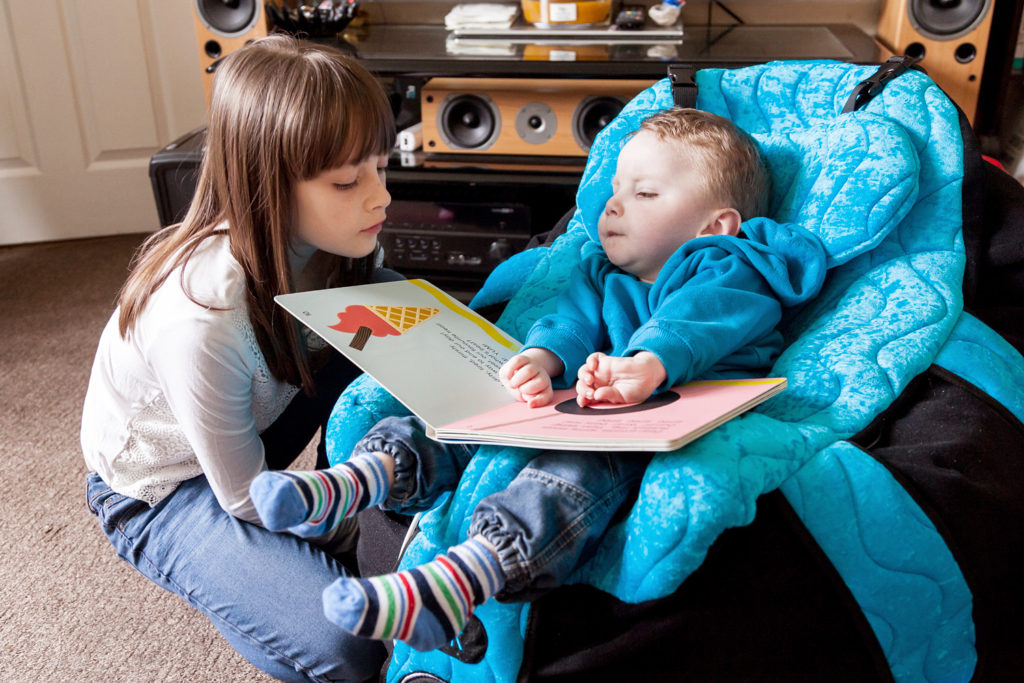Grants, loans, savings & local authority schemes
10 mins read
Information about charity grants you might be able to apply for, local welfare schemes and budgeting loans/advances.
View content only relevant to your country:
In this article
Grants
Contact does not give grants or financial help.
Many charities will give grants to families in order to help with things like specialist equipment, therapies, essential items, and holidays. This can range from small local charities to large national organisations, such as The Family Fund.
Before looking into grants or funding, you might be better taking our Turn2Us benefits check to make sure you’re claiming what you’re entitled to.

Online grants search
Find out about grants and financial help by using our Turn2Us grants search tool, below.
Our grants list
We have a summary list of charities that offer grants and funding for certain occupations, disabilities or geographical areas. Many charities do not accept applications directly from individual families and you may need a professional such as a GP, teacher or social worker to make the initial application.
Please check eligibility criteria before applying for any financial help.
- A list of charities and trusts that might give general grants to families with disabled children – these may help with household items, specialist equipment and holidays
- A list of charities and trusts that might give educational grants to families with disabled children – these may help with one-off grants for books, equipment and other student expenses
Preparing for adulthood grants in Scotland
The ILF Scotland Transition Fund
The ILF Scotland Transition Fund provides money, for up to a year, to help young disabled people to become more independent and spend time with other people.
It can be used for a wide range of things someone may not be able to do otherwise, including developing a new skill, joining a class or club, paying for lessons such as art or music, accessing a training course, or buying a piece of equipment.
The ILF are currently only accepting first-time applications.
Find out more about the Transition Fund.
ILF Scotland Technology Grant
The Technology Grant is an initiative designed to help combat digital isolation for young people. If your child is aged 16-25, has a disability or impairment and live in Scotland, they can apply for the Technology Grant.
Applicants can pick one of two pieces of technology to help them get online:
- A10.2-inch Apple iPad tablet computer.
- A Microsoft Surface Go 3 tablet, with keyboard and stylus.
People who apply for the Technology Grant can also apply for the ILF Scotland Transition Fund.
Local authority schemes
If you are on a low income and you’re struggling financially, your local council/authority might offer grants, loans or assistance in kind.
In England, the type of help available and who qualifies varies from council to council. Help can include emergency crisis grants, support from the Household Support Fund (or equivalent) or Discretionary Housing Payments.
Ask your council, or local Citizens Advice, whether there is a welfare assistance scheme in your area and how you apply.
The Finance Support Service in Northern Ireland can provide help towards short-term living costs in the form of loans and grants. The service also helps people waiting for new Universal Credit payments and provides other benefit advances.
In Scotland, the Scottish Welfare Fund provides grants to help low income families in Scotland. Anyone on a low income can apply – you don’t necessarily need to be on benefits. You may also be able to get help with housing costs through Discretionary Housing Payments.
Scottish Welfare Fund
There are two types of grant.
Crisis Grants
These provide help with living costs such as food or heating in an emergency. For example, you can get a crisis grant if you are facing an emergency such as a fire or flood, or because you have lost your money or some other crisis.
Grants can also be awarded if you have taken over the care of a child and you’re waiting for their benefits to be transferred.
Community Care Grants
These are grants to help you or someone you care for pay for items needed to live a settled life in the community. For example, you may be awarded a grant to buy white goods such as a cooker or fridge.
It can be awarded where a child’s health is at risk, or if you’re a family under exceptional pressures. They are also awarded where help is needed to keep someone out of care or help them resettle in the community after a period in care.
Your chances of getting a Community Care grant will be reduced if you have savings of more than £700 (£1,200 if you have a state pension).
How do I apply for a grant?
In order to apply for a grant from the Scottish Welfare Fund, you need to contact your council.
If you are unhappy with a decision on your application, you can ask your council to review their decision. You should do this within 20 days. If you are not happy with the review decision, you can then ask the Scottish Public Services Ombudsman to look at the decision.
If I qualify for a grant will I receive this in cash?
Not necessarily. If you are awarded a crisis or community care grant, you may get cash. Instead, your council may provide you with the items you need. Some councils make payments using pre-paid cards or vouchers.
Discretionary Housing Payments in Scotland
If you get help with rent costs from Universal Credit or Housing Benefit, but the amount doesn’t cover your full housing costs, you may be able to get some help to meet the shortfall from your local council. This is known as a Discretionary Housing Payment.
So for example you may wish to apply for a Discretionary Housing Payment if:
- Your benefit is reduced because of the bedroom tax or the benefit cap.
- You are a private tenant and the help you get with rent is being capped.
- Your benefit doesn’t cover your rent because money is being deducted because other adults live with you.
- You need help with a rent deposit or rent in advance.
- You need help with removal expenses.
Do I have a right to a Discretionary Housing Payment?
No. These payments are at the discretion of the local authority so you have no legal right to them. Whether you get a payment and if so, how much, is at the discretion of the local authority. Payments are also made for a temporary period so you may need to reapply for help periodically.
The Scottish Government has provided extra funding to councils so that they can use Discretionary Housing Payments to compensate people in social housing affected by the bedroom tax. If you’re affected by the bedroom tax and apply for a Discretionary Housing Payment, your local council is expected to give you one.
How do I apply for a Discretionary Housing Payment?
You need to apply via your local council. The way you do this will vary depending on your council’s own policy. You are likely to be asked for information about your household income and how much you spend every month.
In Wales, there are emergency assistance payments towards essential costs via the Discretionary Assistance Fund. Your local authority might be able to offer other support, such as emergency food vouchers – contact them directly.
Budgeting loans/advances
If you have been in receipt of income-related Employment and Support Allowance or Pension Credit for at least six months, you can apply for an interest-free budgeting loan from JobCentre Plus to meet the costs of certain essential items. Budgeting loans have been replaced by budgeting advances for those on Universal Credit.
There is a different application process in Northern Ireland as in England, Scotland and Wales (linked above).
Any help that you get from a budgeting loan or a budgeting advance needs to be repaid from your ongoing benefit payments. This will be done gradually over time.
Help with savings: Help to Save
Universal Credit claimants can open a government Help to Save savings account.
Under this scheme, savers can pay in up to £50 each month and receive 50p for every £1 they save over four years. Bear in mind that any savings you have can affect means-tested benefits.
How does it work?
You can save between £1 and £50 each calendar month. You do not have to pay money in every month.
You’ll get a 50% bonus on your highest savings amount at the end of two years. Two years later, you’ll receive another 50% bonus. This will be on the difference between the highest savings amount in years 3-4 and the highest savings amount in years 1-2.
You can make withdrawals at any time. You’ll still get the bonus on the highest amount reached in the account, rather than the amount remaining at the end of the two years.
Here’s an example:
After two years, you’ve saved £720 by paying in £30 each month. You’ll receive a bonus of £360, which is 50% of £720.
In the next two years, you bring your savings up to £1,200, then withdraw £200. At the end of year 4, there is £1,000 in your account. You’ll still get a 50% bonus on the difference between £1,200 and £720, which is £480. Your second bonus will be worth £240.
After four years, your account will close.
Find out more about Help to Save.
Help with Council Tax and rates
There are three separate schemes offering help with council tax. (Council Tax only applies to England, Scotland and Wales. In Northern Ireland, people pay rates instead.)
Two of these schemes, the council tax discount scheme and the disability reduction scheme, operate across the whole of Great Britain.
The third scheme – the council tax reduction scheme – operates differently in England, Scotland and Wales. Under this scheme, people on a low income who are liable to pay council tax can apply to their local council for help towards their council tax bill.
See more information about help with Council Tax.
In Northern Ireland, people pay rates instead of Council Tax. If you are on a low income, you may be able to get help with paying your rates through the Rate Relief Scheme or, for Universal Credit claimants, through a rate rebate.
See more information about help with rates.
Help with education costs
Visit our webpage on our help with education costs page for information on free school meals, school clothing grants and transport to school and college.
Funeral and maternity grants
People on certain benefits may be eligible for a grant if they are responsible for the costs of a funeral or have recently given birth or adopted a child. Find out more about:
- Funeral Expenses Payment (in England, Northern Ireland and Wales).
- Funeral Support Payment (in Scotland).
- Sure Start Maternity Grant (in England, Northern Ireland and Wales).
- Pregnancy and Baby Grant (in Scotland).
Related information

Local support & legal advice
Information about the help available in your area, from local advice organisations to parent support groups.
Read more
Social care
As a parent of a disabled child you are entitled to certain services to help.
Read more
Personal budgets and direct payments
You might have different options for how you choose, manage and pay for the care you and your family need.
Read more